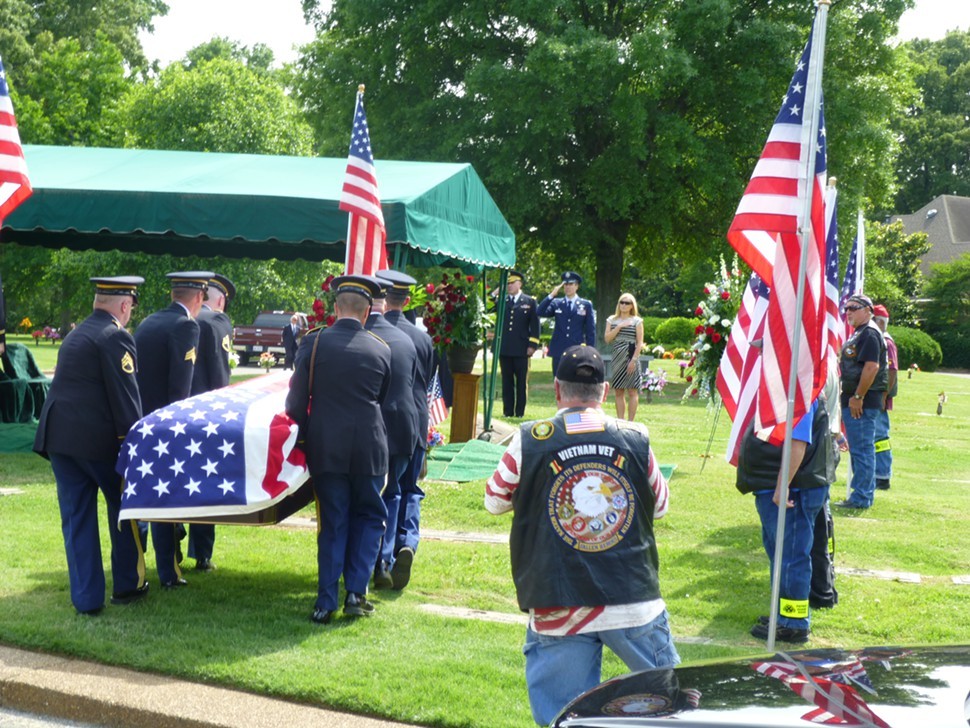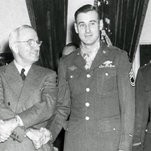
SPA, Belgium — In the last four days, I have experienced: 1) Oktoberfest in Munich; 2) a half-day tour of the concentration camp at Dachau; 3) a lumberjack contest in Luxembourg; 4) a tour of the Battle of the Bulge sites, focused on the Belgian town of Bastogne; and 5) immersion in Fort La Ferté, a key component of the Maginot Line, the series of French fortifications which were meant to halt the German invasion of France in 1940, but failed to do so.
I have also, through the miracle of modern science, been able to kibitz via the internet Monday’s meeting of the Shelby County Commission, which, at 10:40 p.m., Spa time, had really just gotten started.
As we speak, they are about to deal with zoning regulations applicable to private sex clubs. One of the clauses of a new ordinance being proposed by Josh Whitehead of the Office of Planning and Development will read, “A private sex club shall not be considered a place of worship.”
Commissioner David Reaves asks to be excused from voting. “I just can’t vote on something involving sex clubs,” he explains. The item, a compendium of several zoning matters, still passes with 12 votes.
Did I mention that I experienced Oktoberfest in Munich?
I’m on a bucket-list trip to Europe. Still to go, before I return for the final few days of the city election, are trips to Normandy, where the group I’m with will spend a couple of days looking at the D-Day landing areas, and then to Paris (briefly) before coming home.
If the Normandy tour is anything like those we’ve been through so far, we’ll learn one hell of a lot that you can’t get from books. We’ll also work hard at it. At one point in going through the Maginot fortifications, where passages were sardine-can-size cramped, we had to troop up 167 steps of a winding stairway. Huff and puff doesn’t begin to describe it. The 140 or so defenders of Fort La Ferté died from smoke asphyxiation under bombardment in those claustrophobic confines.
Meanwhile, in Memphis, audience member Jane Pierotti is inveighing against a proposed commission rules change that would drop the number of votes required for a rules change from two-thirds of the membership to a simple majority. She quotes Lord Acton and notes that Darth Vader did not start out on “the dark side” but sure as heck ended up there.
This item passes with 12 votes as well.
I cannot pretend that I know everything that has transpired in the city election since I wrote last week’s cover-story roundup of the various races. The trend lines seem to be still in place, however, and, as far as I can see, will continue all the way through early voting and right up to the final October 8th election date.
The mayoral debate that WMC anchor Joe Birch and I co-moderated last Tuesday at the Rotary Club of Memphis was so even-keeled and impressive that almost everyone, including a key supporter of Mayor A C Wharton who normally spins with the best of them, concluded that all four participants — Wharton, Councilmen Jim Strickland and Harold Collins, and Memphis Police Association director Mike Williams — had demonstrated they were capable of running the city.
Part of that has to do with the fact that frequent interchanges with each other and with the public have made them all conversant with the issues of importance — a process that, as we noted editorially last week, just can’t, or shouldn’t, be skipped or foreshortened.
That all of them, after that dignified affair, went after each other, slugfest-style, at the University of Memphis the same night, doesn’t contradict that fact; it just indicates that they all are aware of the importance of the stakes.
Meanwhile, the commission is announcing plans to go into budget matters with an intensity and thoroughness that have not previously been the norm. “It may not be to the advantage of the administration,” opines new chairman Terry Roland, “but it will be to the advantage of the people.”
The commission, says Roland, will also look into EDGE, the joint city/county industrial development board, with the idea of making some serious changes.
Meanwhile, through the auspices of Education First, on an itinerary planned by former Shelby County Schools chairman David Pickler, I’m getting lessoned up on other, more historic battlefields.
Back at you next week before the final vote.

